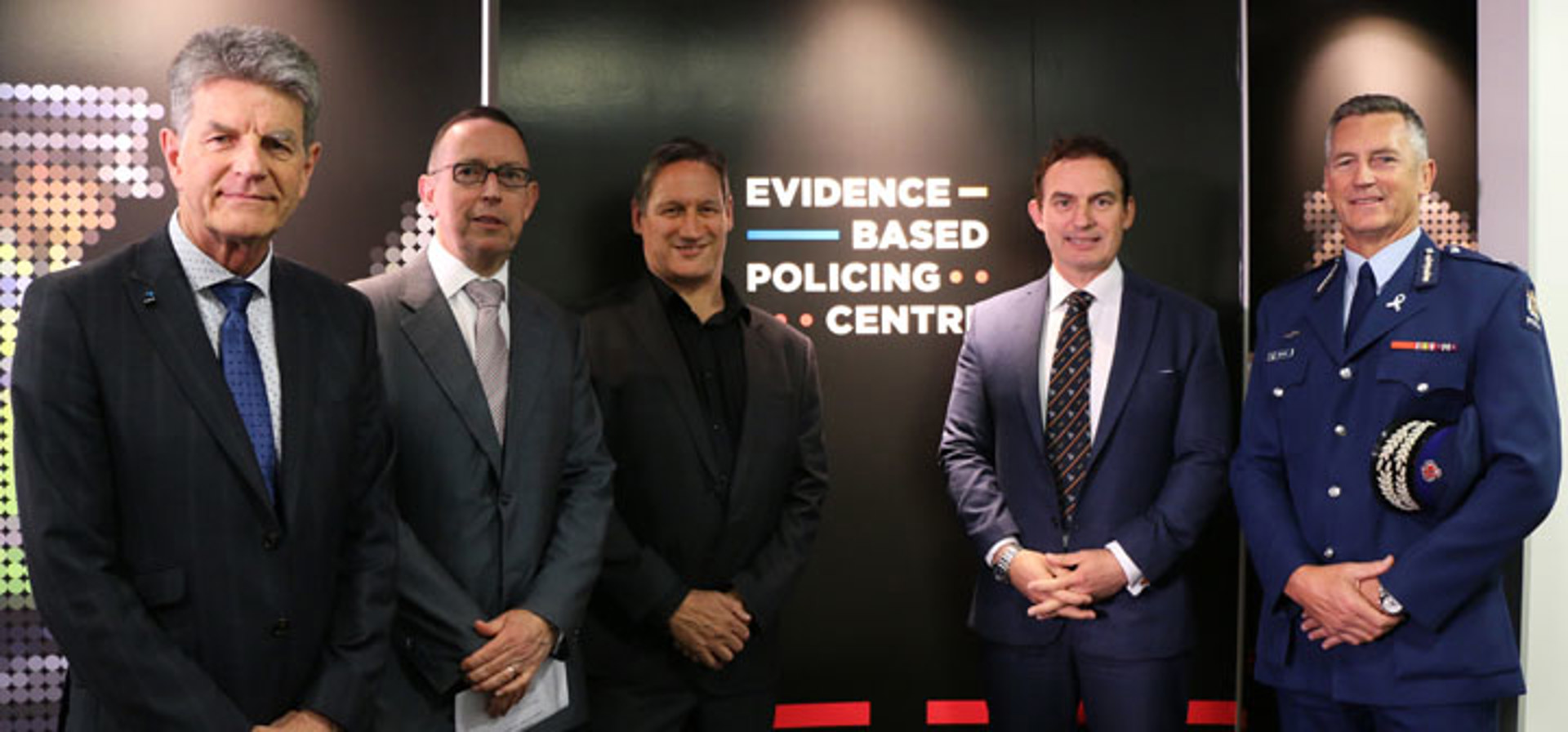The new Evidence Based Policing Centre (EBPC) in Wellington was opened in early December 2017.
Evidence-based policing is a method of making decisions about what works and which practices and strategies accomplish police missions most effectively. In contrast to basing decisions on theory, assumptions, tradition, or convention, an evidence-based approach continuously tests hypotheses with empirical research findings.
Police constantly collect vast amounts of data, from burglary statistics to car crashes to domestic violence. They have years of offender demographics. ESR scientists will use their expertise and skills to extrapolate and study demographics to provide Police with a deeper understanding of crime.
“Police are an important and integral part of the community and there can be no doubt policing in the 21st century is challenging. There are the challenges of meeting political and community demands and expectations, and the need to be agile in responding to new priorities in an environment of significant change. The challenges are unlikely to lessen anytime soon,” said ESR Chief Executive, Keith McLea at the opening of the centre.
“Like all organisations the New Zealand Police must use resources wisely and with due diligence in ways that add value to the citizenry, organisation and government. These are all factors making a case for enlisting evidence to guide decision making. This is why there is a global movement within police organisations to invest in research and translate research findings into practical actionable strategies.”
ESR has a long history as the sole provider of forensic services to the New Zealand Police. We already have data and intelligence to inform on some crime trends. For example combining two of ESR’s expert capabilities in drug forensics and biowaste, we were commissioned by Police to test sites in Auckland and Christchurch to allow authorities to map drug-use patterns and provide better data than that achieved through self-reporting or drug arrests.
The findings to date have enabled Police and other agencies, such as Customs, to better understand drug-use patterns in the population and will be used as a baseline for future results. One good news story has already emerged following very high usage of MDMA in Christchurch. Police and Customs increased resources, targeting MDMA at the airport. Within a few days a shipment was seized.
Another example is the Custom’s ESR Screening Laboratory (CESL) in Auckland. Every day thousands of people, packages and large amounts of cargo arrive at the New Zealand border and enter the country. The laboratory is responsible for screening and identifying suspected drug samples seized by Customs at border security, and through the international mail centre.
In 2011 ESR embarked on a project in collaboration with the University of Auckland to develop analytical methods to identify unknown suspicious compounds. The so-called ‘designer drugs’ are sufficiently modified from known substances so analytical methods at the time were unable identify them. Overall, forty new designer drugs have been identified and the results recorded into a Designer Drug Database. The Database accounts for nearly 15% of all identifications made at CESL. The information is essential to inform other agencies of potential risks that may be entering New Zealand communities, as well as assisting in Customs investigations.
Another ESR project was investigating how to use forensic data to better inform how to prevent, respond or support the recovery from crime. The six month pilot project was a collaboration between the social scientists in ESR’s Environmental Science Group and casework experts in our Forensic Group. The approach provided a unique combination of systems thinking expertise and data analytics expertise to identify opportunities to use data to support system– wide improvements, not just in the delivery of forensic science but also across the broad social investment approach to justice.

Opening of the Evidence Based Policing Centre
L-R: Keith McLea (Chief Executive ESR); Professor Neil Quigley (Vice-Chancellor University of Waikato); Russell Stanners (Chief Executive, Vodafone); Stuart Nash (Minister of Police); and Mike Bush (Commissioner of Police).

